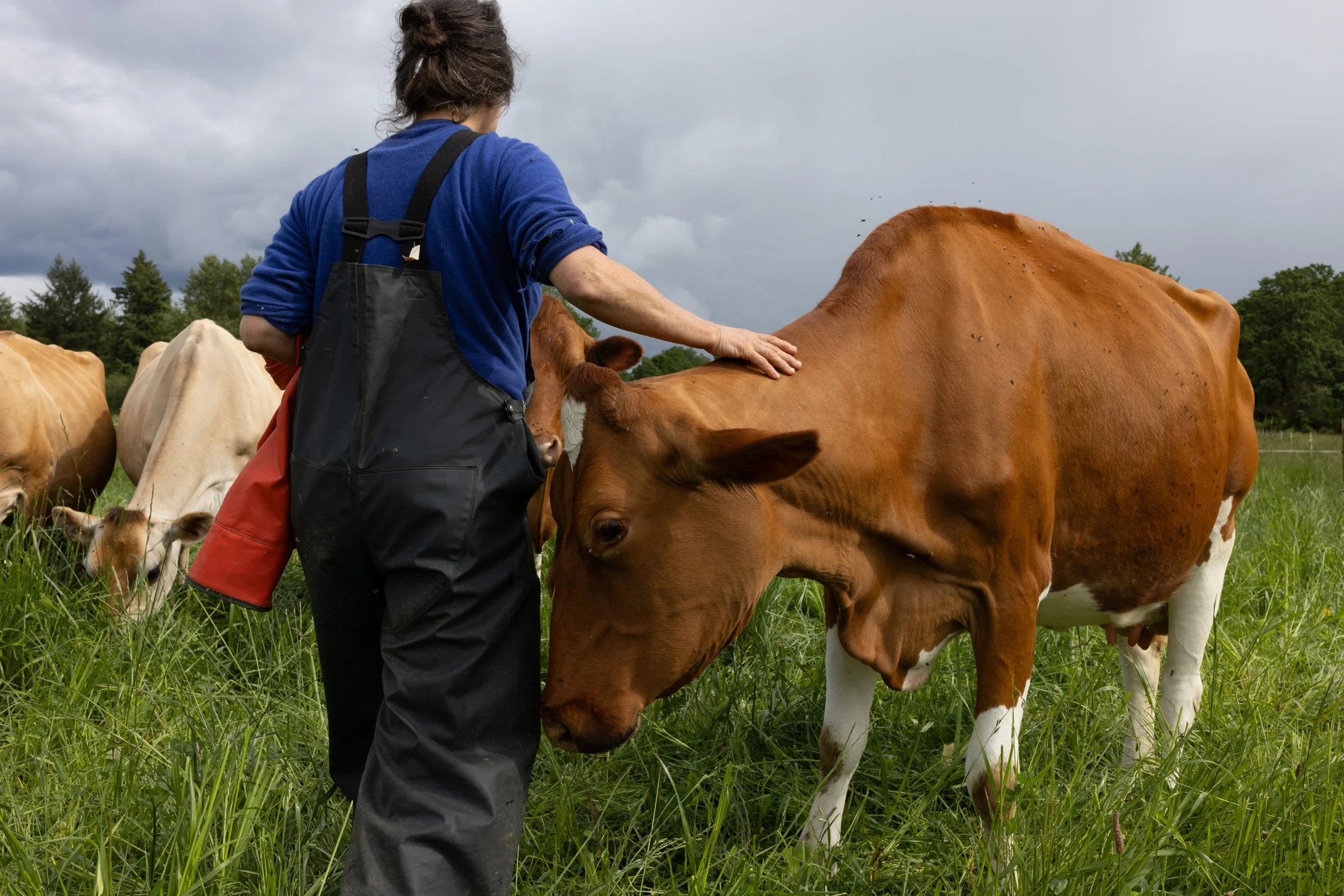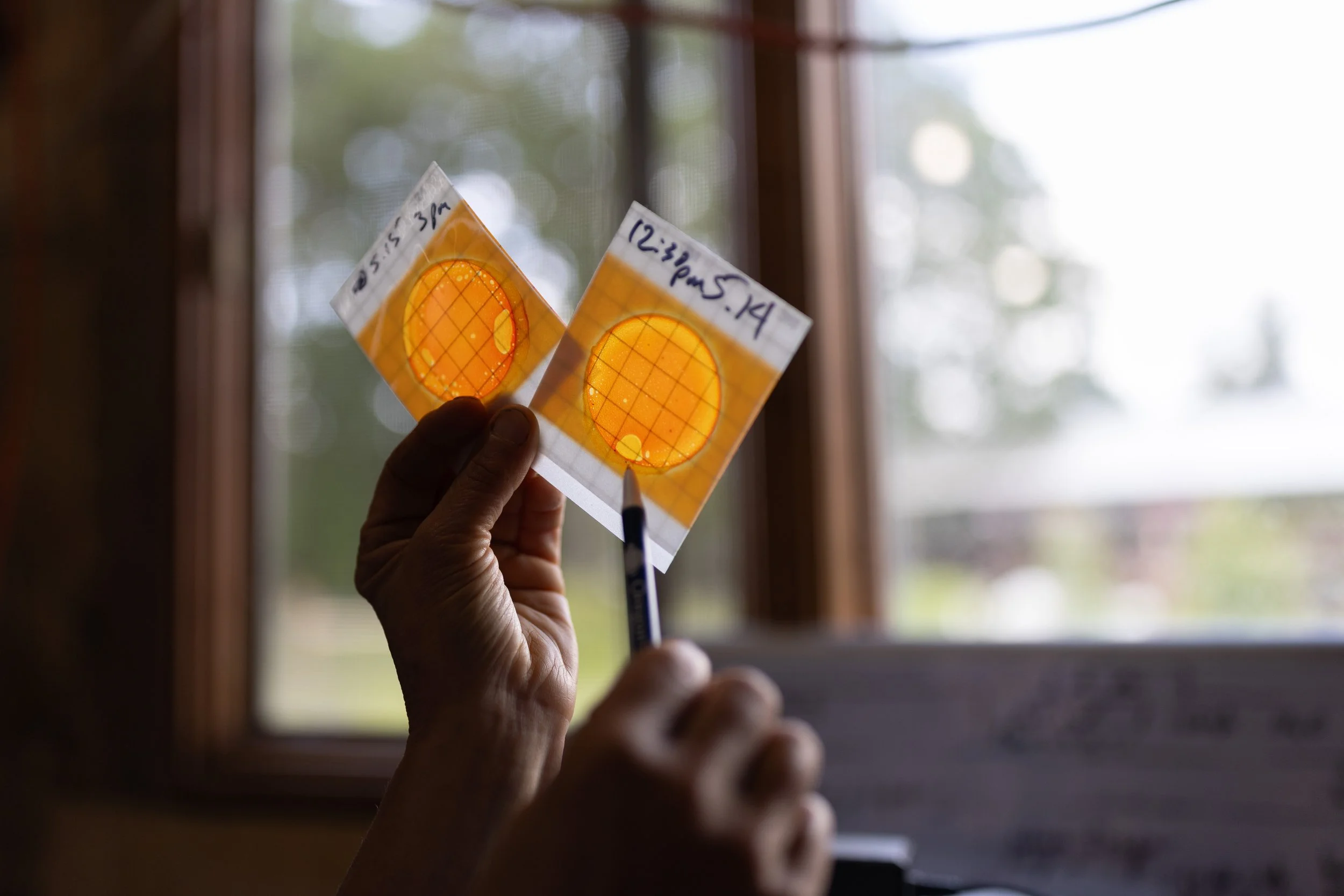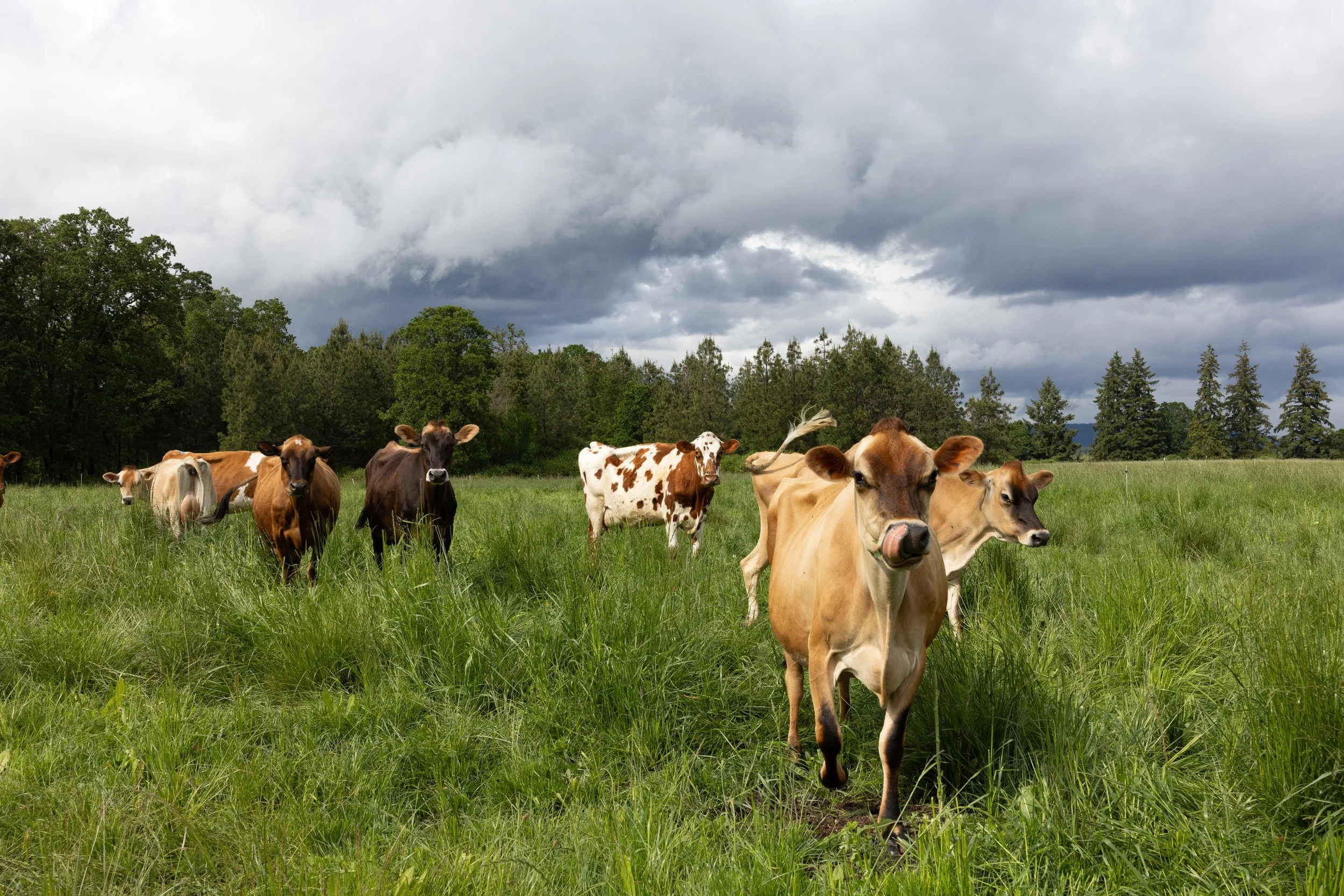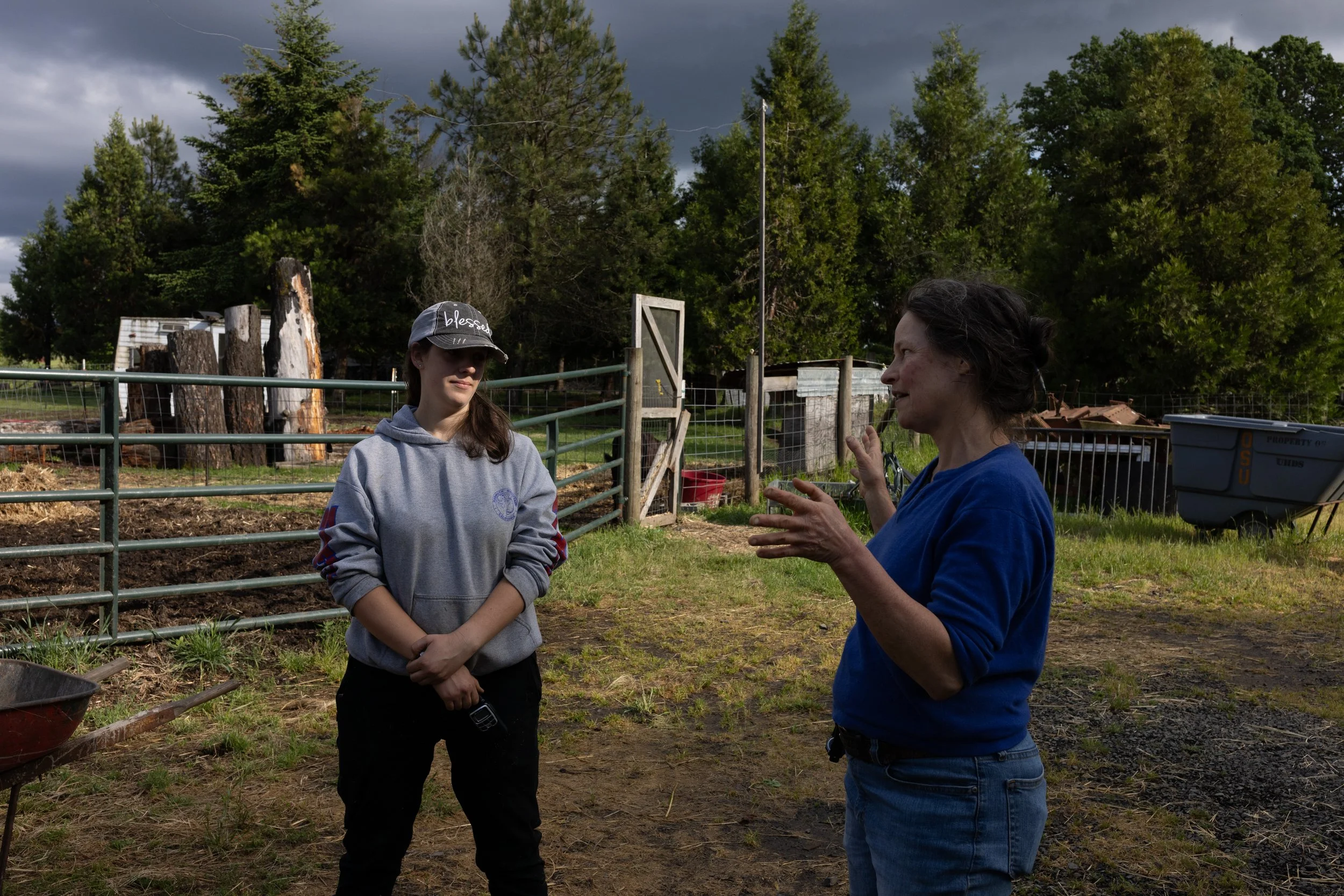
Community Cattle
As raw milk gains traction through small herd share farms like Grassward Dairy, a complex conversation unfolds. Balancing personal choice, public health, and the future of sustainable agriculture in the face of federal regulation and growing consumer demand.
Story by Brandon Jonas and Miles Cull
Photos by Miles Cull
Modern dietary styles are abundant. You can find plant-based foods and products, alternative fats and oils like olive or coconut, or natural, unaltered foods like specialty dairy and beef. The internet and social media have created a space where people share their food preferences or try to inform others of new diets and lifestyles. Raw milk has been around for decades, but because of these recent food trends, it’s beginning to resurface again.
One of the ways raw milk has resurfaced is through herd share farms, where a portion of a cow is purchased. Herd shares enable closer relationships with farmers and allow for understanding of where your food comes from. Grassward Dairy in Lebanon, Oregon, is just one farm in a small network of about 24 local Oregon herd shares. Grassward Dairy was founded in 2017 by Aimee Marciniak and her partner, Bryan Fuller. Marciniak says that the dairy consists of 100% pasture-raised and grass-finished cows. Marciniak, previously vegan, started the farm after realizing that she could, and wanted to, “consume animals out of production systems that match my values.”
Some people believe raw milk has potential health benefits, such as promoting better digestion, improved gut health and potential allergy relief. On the other hand, the FDA strongly advises against consuming raw milk due to its potential health risks. Raw milk or unpasteurized milk poses a higher risk of carrying bacteria like Salmonella, E. coli, Listeria and Campylobacter. The sale of raw milk is illegal in multiple states such as New Jersey, Maryland, Delaware and Georgia. These are just a few of the states that chose to follow FDA and CDC guidelines for milk pasteurization to prevent the spread of foodborne illness.
Prompted by a lawsuit from Public Citizen in 1986, a federal court ordered the FDA to ban the interstate sale of raw milk, citing health risks. In 1987, the FDA implemented a regulation prohibiting the interstate sale of raw milk for direct human consumption. States and cities also had a record of banning or prohibiting the sale of raw milk as early as 1908, when Chicago began requiring milk pasteurization. Some places have revised their decisions and now allow on-site sales from farms, but do not allow raw milk to be sold in retail locations. Oregon allows “direct-to-consumer” sales from herd share farms with no more than three lactating cows and no more than nine lactating sheep or goats.
The sale of raw milk has sparked a heated debate over food freedom, safety regulations and the rights of small farmers, highlighting a broader tension between personal choice and public health oversight. California, Washington, Idaho and Pennsylvania are a few states that have seen bacterial outbreaks from the distribution of raw milk in 2024 and 2025. California alone saw outbreaks of Salmonella, Bird Flu and E. Coli. Despite this, a bill to reinstate the interstate sale of raw milk was presented to Congress in 2024. The bill is being offered in response to federal regulations that have targeted small producers of raw, unpasteurized milk products who sell their product across state lines.
Marciniak claims that by testing her farm’s milk daily and maintaining a high standard for cleanliness on her farm, the milk is safer than most raw milk. “One of our major target audiences is folks who have a wide variety of Health special needs, and they have limited foods that their body will tolerate,” Marciniak said. “They're looking for something that is clean, nutrient-dense and their body can accept and you know keep them Vital, so some of those folks may be in those communities of people who are recommended maybe not to consume Raw Milk.”
Raw milk supporters argue that individuals should have the freedom to choose what they consume and from whom they purchase it, especially when it comes to natural or traditional food products. They contend that informed adults should be trusted to make their own dietary decisions without excessive government interference, framing the debate as one not just about health risks, but about preserving personal liberty and consumer autonomy.
Marciniak believes that consumers should know where their food comes from. To her, large, industrialized dairy farms are black boxes where consumers can’t know how their food is handled, much less “give their farmer a hug.”
While petting one of her Jersey cows, Marciniak said that prospective members of the herdshare first come to the farm personally to see if her operation matches their expectations and values. “Because of the way that we're transparent, and that we have a relationship-based business operation with them, that they're willing maybe to take the risk rather than just any raw milk dairy, where they wouldn't necessarily have either that level of trust and or commitment to a relationship,” she said.
In 2013, there were roughly 17 herd share farms in Oregon compared to the over 35,000 total farms registered. Now that number has risen to around 24, however, herd share farms still represent a very small fraction of Oregon’s farming industry.
As of the 2022 Census of Agriculture, small farms under 10 acres constitute 32% of all farms in Oregon, while those between 10 and 50 acres make up 35%. However, large farms over 2,000 acres represent only 6% of the total number of farms but account for 76% of Oregon's total farmland acreage.
In the dairy sector, this disparity is even more pronounced. While small dairies are more numerous, large-scale operations dominate milk production. The state's largest cooperative dairy, Tillamook County Creamery Association, sources over two-thirds of its milk from large-scale operations like Threemile Canyon Farms.
“We’ve had some incidents,” said Marciniak, holding the day’s coliform bacteria and aerobic tests. According to her, if raw milk is left in a car too long or is stored improperly, bacterial growth can be a real concern even if her farm’s raw milk is normally safe.
“Nothing less than everything,” goes into keeping her cows and customers healthy, said Marciniak.



